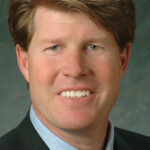The focus in the banking industry during 2017 continued to be on performance. The Fed began raising the fed funds rate in late 2015 and again in late 2016. All expectations were for rate increases to resume in 2017, which they did in January, March and July up to a range of 1.00 to 1.25 percent, where it has remained. Even with these increases, margins remain compressed and borrowers are challenged by persistent concerns, particularly in the agricultural economy. Ag output pricing remains low and current supplies high. Therefore, as producers try to wait for price increases to sell, returns to producers resulting from improved yields on new production are not expected to materially increase overall returns and may have the effect of increasing downward pressure on prices, thus reducing returns. To increase prices more, avenues for sales need to open up. Trade restrictions can be counterproductive to development of market expansion, keeping domestic supplies to low valuations. This is putting pressure on land valuations adding further complications for banks operating in the agricultural communities. [Continue]








